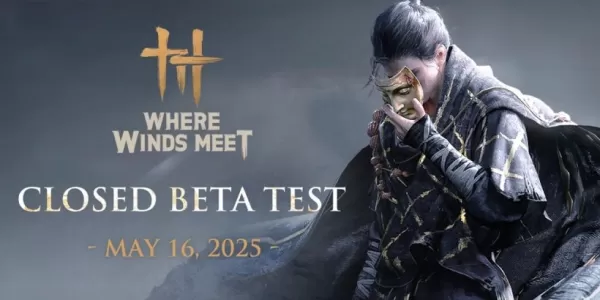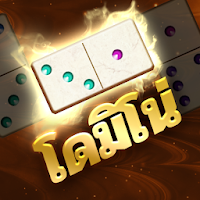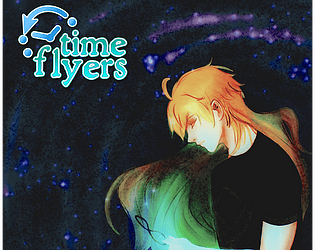Starting its journey as a spin-off of the Shin Megami Tensei series, the Persona franchise has evolved into a powerhouse in the world of modern RPGs. With a diverse array of sequels, remakes, anime adaptations, and even stage plays, Persona has cemented its status as a multimedia phenomenon, showing no signs of slowing down in popularity.
The latest addition, Persona 3 Reload, is now playable on PlayStation 5, Xbox Series X, and PC, sparking curiosity among new players about the best starting point. Below, we provide a comprehensive overview of every game and spin-off, including the ideal entry point for newcomers, as well as the chronological and release order of the series.
Jump to:
- How to play in order
- How to play by release date
- Upcoming releases
In total, there are currently twenty Persona games. This count includes various expanded versions of mainline entries, such as re-releases with new story content or remakes. We will list every alternate version below, but direct ports and remasters are not included.
Which Persona Game Should You Play First?
For newcomers, starting with Persona 3 Reload, Persona 4 Golden, or Persona 5 Royal is a safe bet. These are the most recent versions of the third, fourth, and fifth mainline entries, respectively, and are available on PC and most major consoles, except for Persona 3 Reload, which is not available on the Nintendo Switch.
If you're worried about missing out on the story by starting with a later game, rest assured that each title—Persona 3, 4, or 5—features a new, standalone narrative with fresh characters, making them excellent entry points. To choose the right game for you, consider watching gameplay videos and exploring the social links to see which resonates with you the most.

Persona 3 Reload
54 Available on PS5, PS4, and Xbox Series X. See it at Amazon

Persona 4 Golden
42 Available on PC, Xbox, PS5, and Nintendo Switch See it at Nintendo

Persona 5 Royal
103 Available on PC, Xbox, PS5, and Nintendo Switch See it at Amazon
Every Persona Game and Spin-Off in Chronological Order
These blurbs contain mild spoilers for each game, including characters, settings, and story beats.
1. Revelations: Persona (1996)
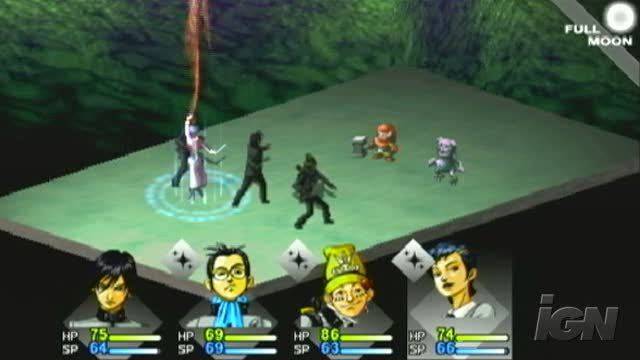 The inaugural game of the series, Revelations: Persona, was Atlus' response to the positive reception of Shin Megami Tensei: If…, another high-school-focused spin-off. Capitalizing on the appeal of battling demons as students, Revelations: Persona introduced a full dungeon-crawling RPG set in Mikage-cho, where a group of high schoolers uses their awakened Personas to combat a supernatural threat. This game laid the groundwork for the series, introducing key elements like Persona combat, the Velvet Room, and a teenage cast.
The inaugural game of the series, Revelations: Persona, was Atlus' response to the positive reception of Shin Megami Tensei: If…, another high-school-focused spin-off. Capitalizing on the appeal of battling demons as students, Revelations: Persona introduced a full dungeon-crawling RPG set in Mikage-cho, where a group of high schoolers uses their awakened Personas to combat a supernatural threat. This game laid the groundwork for the series, introducing key elements like Persona combat, the Velvet Room, and a teenage cast.
2. Persona 2: Innocent Sin (1999)
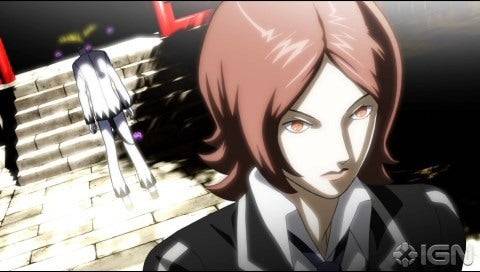 The sequel, Persona 2: Innocent Sin, launched in 1999, featuring a new set of high school students led by Tatsuya Suou. They embark on a mission to thwart a mysterious villain known as Joker and the Masked Circle cult. The narrative revolves around rumors in Sumaru City coming to life, with gameplay centered around dungeon exploration, Persona combat, and party development. Notably, it received a direct sequel the following year with Persona 2: Eternal Punishment.
The sequel, Persona 2: Innocent Sin, launched in 1999, featuring a new set of high school students led by Tatsuya Suou. They embark on a mission to thwart a mysterious villain known as Joker and the Masked Circle cult. The narrative revolves around rumors in Sumaru City coming to life, with gameplay centered around dungeon exploration, Persona combat, and party development. Notably, it received a direct sequel the following year with Persona 2: Eternal Punishment.
Read our review of Persona 2: Innocent Sin.
3. Persona 2: Eternal Punishment (2000)
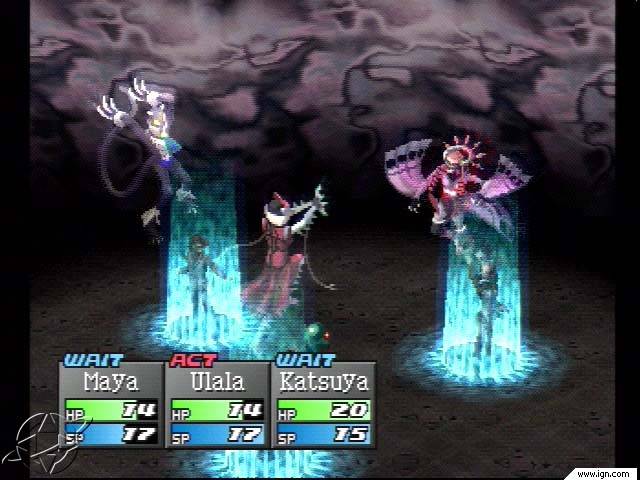 Following up on Innocent Sin, Eternal Punishment shifted the protagonist role to Maya Amano. Tasked with investigating the Joker Curse rumor, Maya and her allies confront a familiar foe. The game continues the turn-based, dungeon-crawling gameplay, focusing on building a strong party and utilizing Personas to fight shadows.
Following up on Innocent Sin, Eternal Punishment shifted the protagonist role to Maya Amano. Tasked with investigating the Joker Curse rumor, Maya and her allies confront a familiar foe. The game continues the turn-based, dungeon-crawling gameplay, focusing on building a strong party and utilizing Personas to fight shadows.
Read our review of Persona 2: Eternal Punishment.
4. Persona 3 (2006) / Persona 3 FES (2007) / Persona 3 Portable (2009) / Persona 3 Reload (2024)
 Persona 3 marked a significant evolution for the series, emphasizing the high school premise with a daily calendar system. Players control Makoto Yuki, who experiences the Dark Hour, a mysterious time where ordinary people are encased in coffins and a demonic tower, Tartarus, emerges from his school. Alongside his classmates, Makoto uncovers a sinister plot threatening the world. Persona 3 introduced social links and day-to-day activities, which have become hallmarks of the franchise.
Persona 3 marked a significant evolution for the series, emphasizing the high school premise with a daily calendar system. Players control Makoto Yuki, who experiences the Dark Hour, a mysterious time where ordinary people are encased in coffins and a demonic tower, Tartarus, emerges from his school. Alongside his classmates, Makoto uncovers a sinister plot threatening the world. Persona 3 introduced social links and day-to-day activities, which have become hallmarks of the franchise.
Read our review of Persona 3 Reload.
Alternate Versions of Persona 3:
Persona 3 has been re-released multiple times. Persona 3 FES added The Answer and a female protagonist campaign. Persona 3 Portable included the female protagonist but omitted The Answer. Persona 3 Reload is a full remake for modern consoles, though it does not include The Answer or the female protagonist route.
5. Persona 3: Dancing in Moonlight (2018)
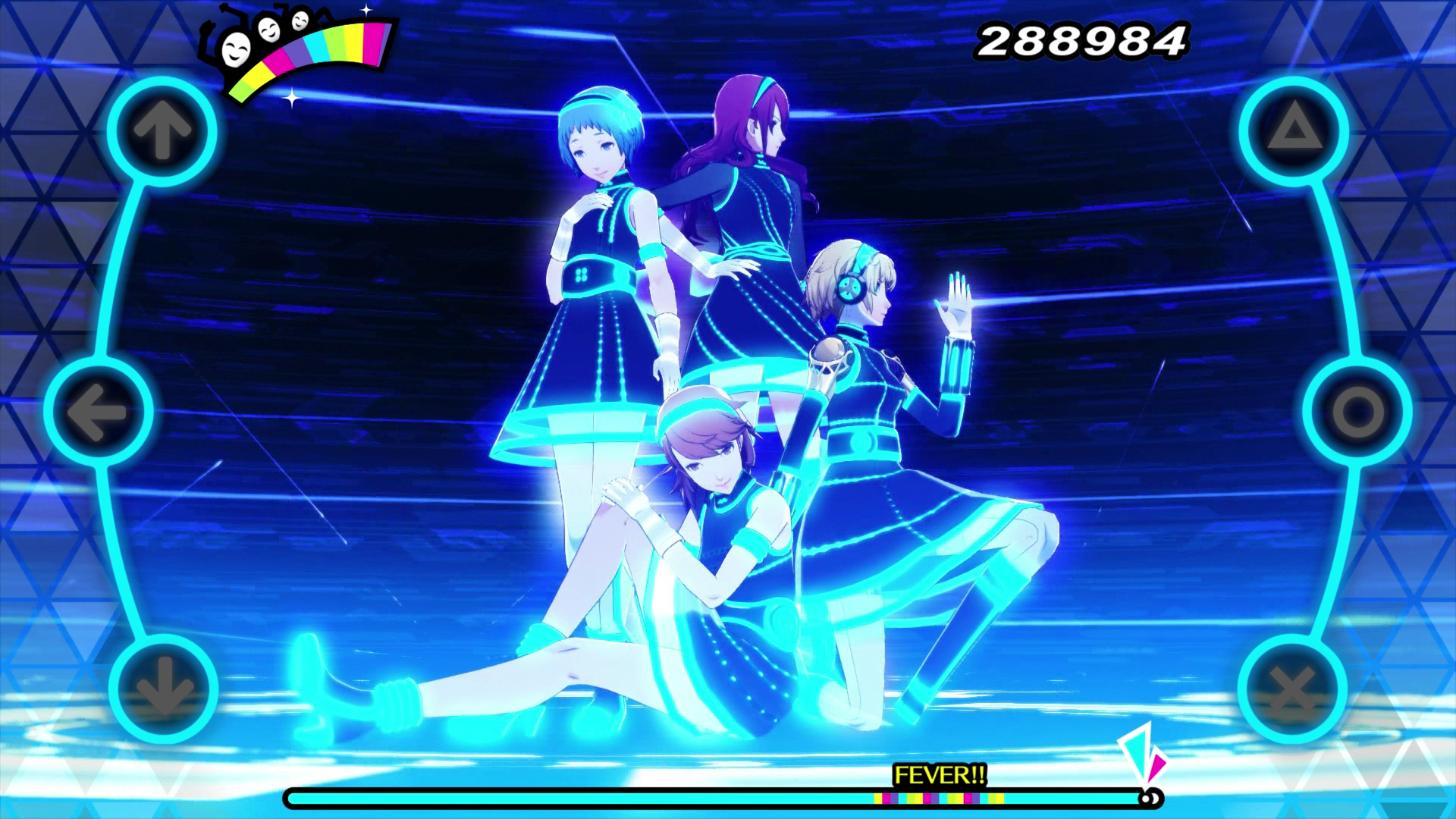 A rhythm-based spin-off, Persona 3: Dancing in Moonlight, occurs during the main campaign. Elizabeth challenges the S.E.E.S team to a dance-off in the Velvet Room, with the events taking place in a dream but still canon to the story.
A rhythm-based spin-off, Persona 3: Dancing in Moonlight, occurs during the main campaign. Elizabeth challenges the S.E.E.S team to a dance-off in the Velvet Room, with the events taking place in a dream but still canon to the story.
6. Persona 4 (2008) / Persona 4 Golden (2012)
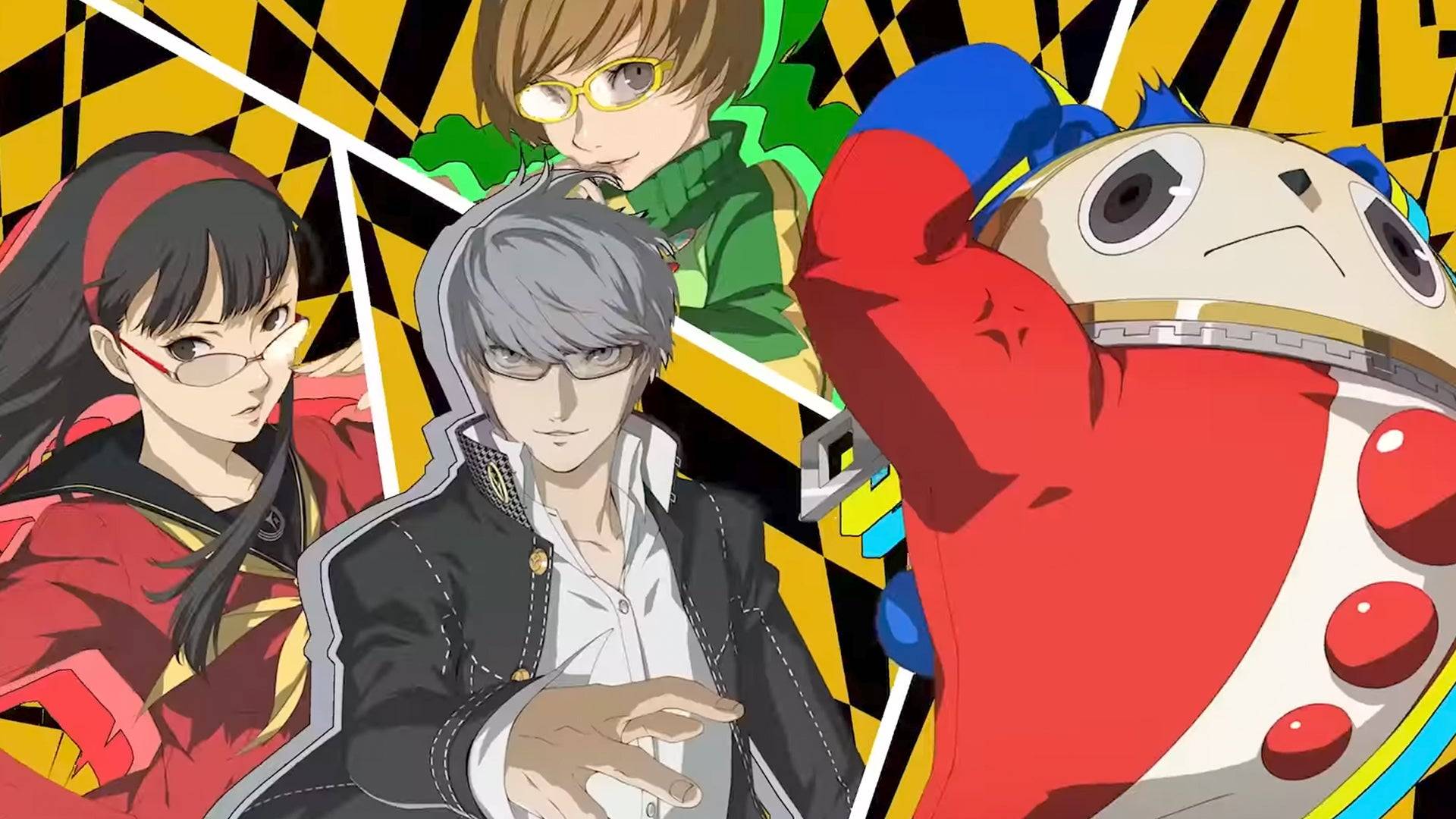 Set in the rural town of Inaba, Persona 4 follows Yu Narukami, a high schooler who moves to the countryside. After a series of violent murders, Yu and his friends discover a connection to a mysterious realm accessible through TV monitors. As they explore this world, they combat supernatural forces linked to the murders, using their Personas. Building on Persona 3's mechanics, Persona 4 maintains the calendar system and social link development.
Set in the rural town of Inaba, Persona 4 follows Yu Narukami, a high schooler who moves to the countryside. After a series of violent murders, Yu and his friends discover a connection to a mysterious realm accessible through TV monitors. As they explore this world, they combat supernatural forces linked to the murders, using their Personas. Building on Persona 3's mechanics, Persona 4 maintains the calendar system and social link development.
Read our review of Persona 4 Golden.
Alternate Versions of Persona 4:
Persona 4 Golden, released in 2012, added new story content and an additional dungeon, widely regarded as the definitive version.
7. Persona Q: Shadow of the Labyrinth (2014)
 Set during overlapping segments of Persona 3 and 4, Persona Q: Shadow of the Labyrinth brings together the S.E.E.S team and the Investigation Squad in a warped version of Yasogami High School. As they navigate a time-bending labyrinth, players explore new dungeons and engage in an original story that harks back to the series' traditional dungeon-crawler roots.
Set during overlapping segments of Persona 3 and 4, Persona Q: Shadow of the Labyrinth brings together the S.E.E.S team and the Investigation Squad in a warped version of Yasogami High School. As they navigate a time-bending labyrinth, players explore new dungeons and engage in an original story that harks back to the series' traditional dungeon-crawler roots.
Read our review of Persona Q: Shadow of the Labyrinth.
8. Persona 4 Arena (2012)
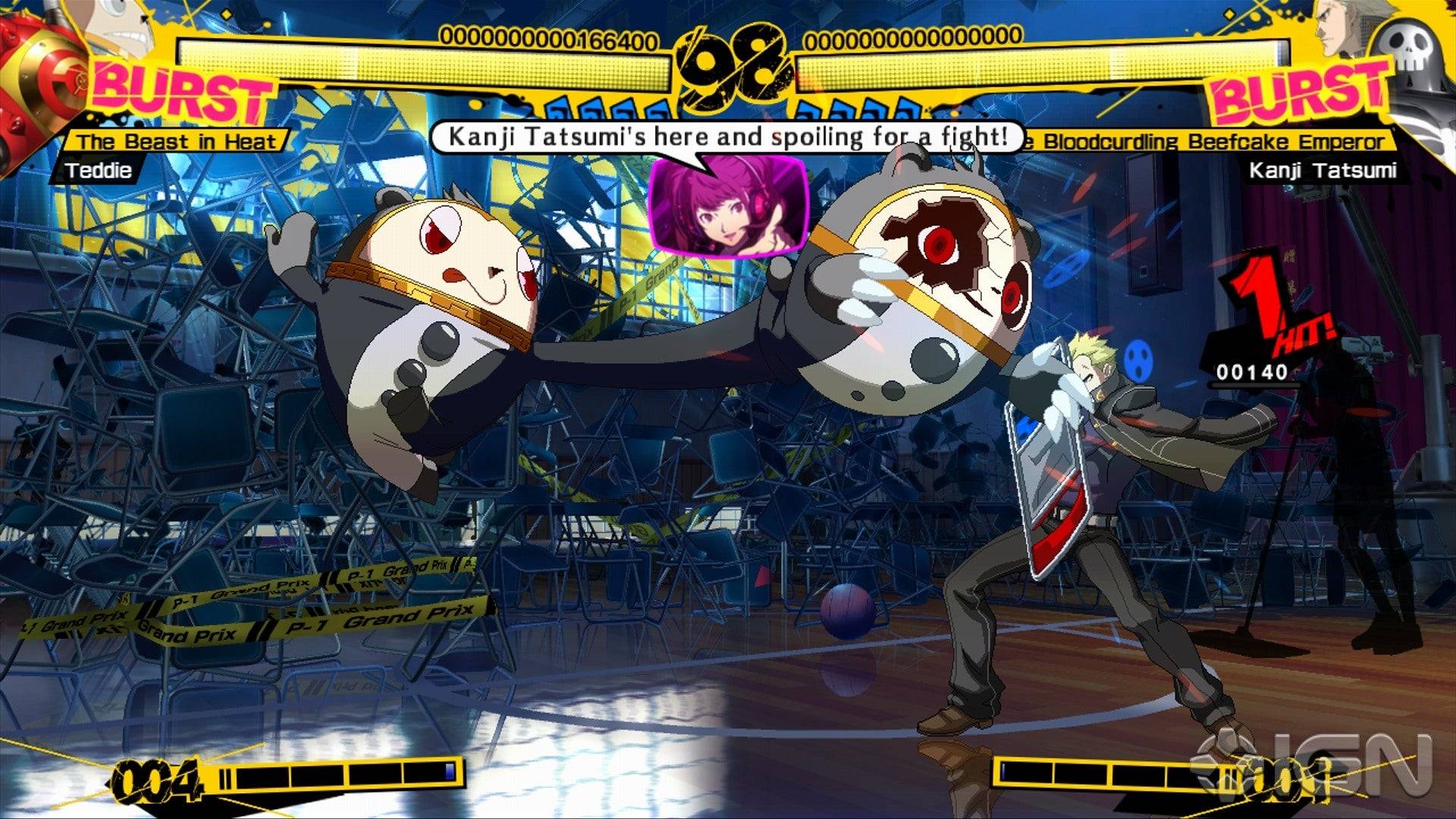 A fighting game spin-off, Persona 4 Arena continues the narratives of Persona 3 and 4. Yu Narukami returns to Inaba and enters the TV world for a mysterious tournament, facing off against allies and the Shadow Operatives from Persona 3.
A fighting game spin-off, Persona 4 Arena continues the narratives of Persona 3 and 4. Yu Narukami returns to Inaba and enters the TV world for a mysterious tournament, facing off against allies and the Shadow Operatives from Persona 3.
Read our review of Persona 4 Arena.
9. Persona 4 Arena Ultimax (2013)
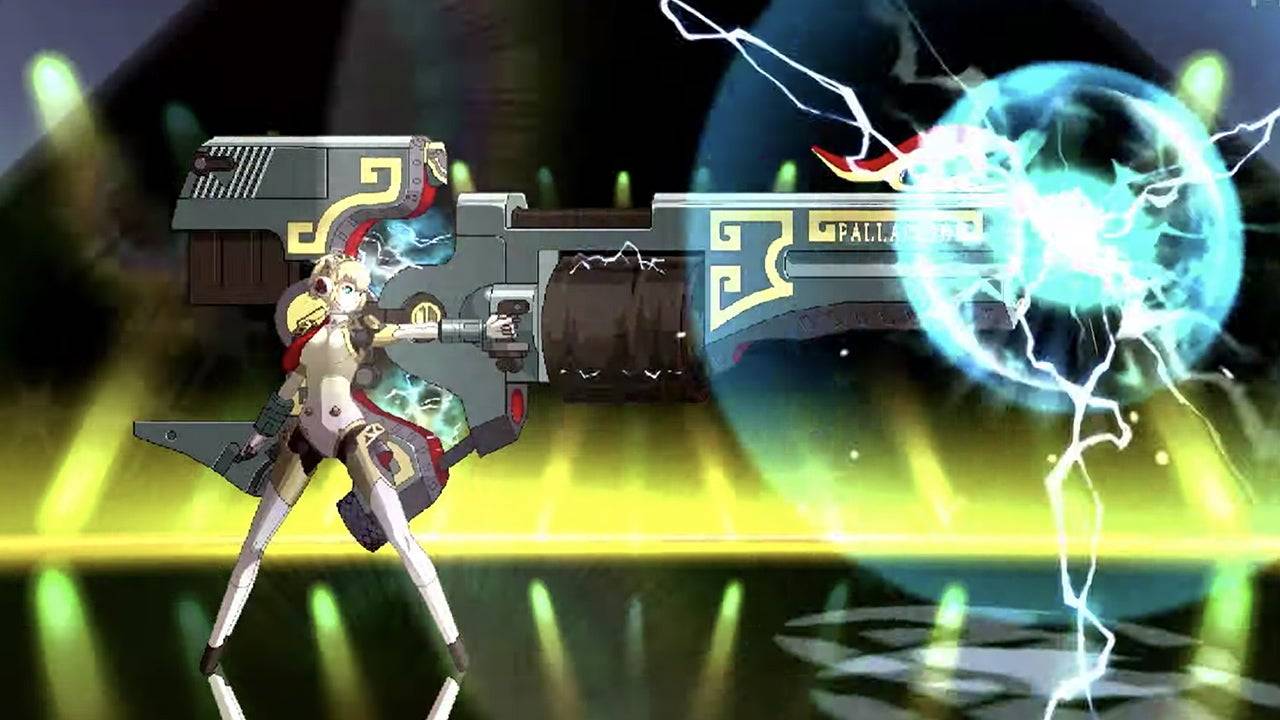 Following directly after Persona 4 Arena, Ultimax expands the roster and narrative, with the Persona 4 squad and Shadow Operatives battling forces in the TV World.
Following directly after Persona 4 Arena, Ultimax expands the roster and narrative, with the Persona 4 squad and Shadow Operatives battling forces in the TV World.
Read our review of Persona 4 Arena Ultimax.
10. Persona 4: Dancing All Night (2015)
 A rhythm-based spin-off, Persona 4: Dancing All Night sees the Investigation Squad performing dance routines in an alternate dimension, the Midnight Stage, offering a canon continuation of the storyline.
A rhythm-based spin-off, Persona 4: Dancing All Night sees the Investigation Squad performing dance routines in an alternate dimension, the Midnight Stage, offering a canon continuation of the storyline.
Read our review of Persona 4: Dancing All Night.
11. Persona 5 (2016) / Persona 5 Royal (2019)
 Set in Tokyo, Persona 5 introduces players to Joker, a high school student on probation after being framed. Discovering a supernatural realm, he and his friends form the Phantom Thieves, infiltrating palaces to change the hearts of evildoers. Building on previous games, Persona 5 introduced new elements like Mementos and became Atlus' best-selling game.
Set in Tokyo, Persona 5 introduces players to Joker, a high school student on probation after being framed. Discovering a supernatural realm, he and his friends form the Phantom Thieves, infiltrating palaces to change the hearts of evildoers. Building on previous games, Persona 5 introduced new elements like Mementos and became Atlus' best-selling game.
Read our review of Persona 5 Royal.
Alternate Versions of Persona 5:
Persona 5 Royal expanded the original with new content, including a new companion, dungeon, and semester, making it the ultimate version.
12. Persona Q2: New Cinema Labyrinth (2018)
 A sequel to Persona Q, New Cinema Labyrinth features a crossover of characters from Persona 3, 4, and 5. Trapped in a movie theater, the Phantom Thieves, S.E.E.S, and Investigation Squad journey into movie worlds to escape, engaging in first-person dungeon exploration and turn-based battles.
A sequel to Persona Q, New Cinema Labyrinth features a crossover of characters from Persona 3, 4, and 5. Trapped in a movie theater, the Phantom Thieves, S.E.E.S, and Investigation Squad journey into movie worlds to escape, engaging in first-person dungeon exploration and turn-based battles.
13. Persona 5 Tactica (2023)
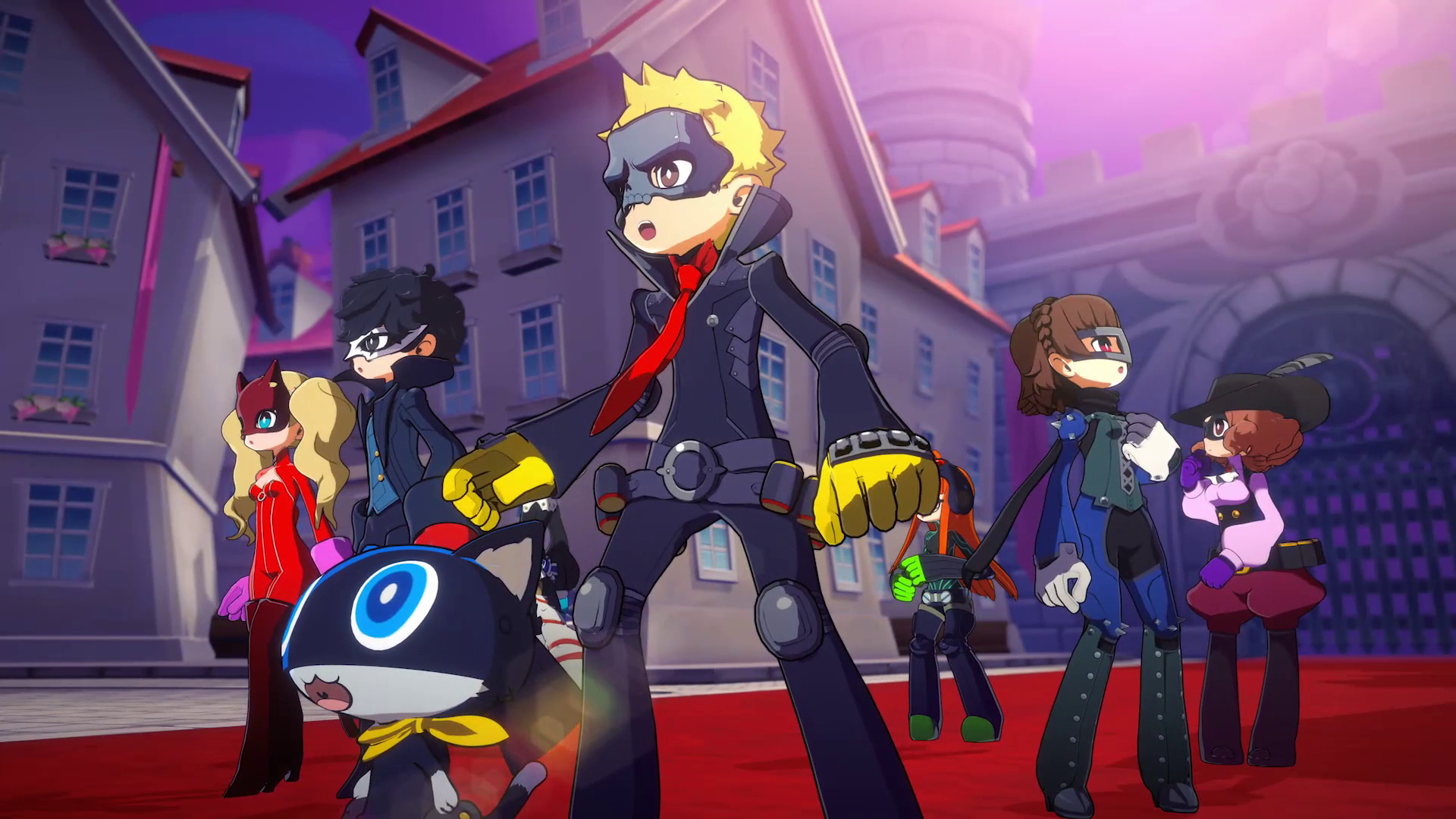 Set during Persona 5, Persona 5 Tactica is a strategy-focused spin-off similar to XCOM. The Phantom Thieves find themselves in an alternate realm called the Kingdoms, where they must save their brainwashed allies and defeat Tyrant Marie using tactical grid-based combat.
Set during Persona 5, Persona 5 Tactica is a strategy-focused spin-off similar to XCOM. The Phantom Thieves find themselves in an alternate realm called the Kingdoms, where they must save their brainwashed allies and defeat Tyrant Marie using tactical grid-based combat.
Read our review of Persona 5 Tactica.
14. Persona 5: Dancing in Starlight (2018)
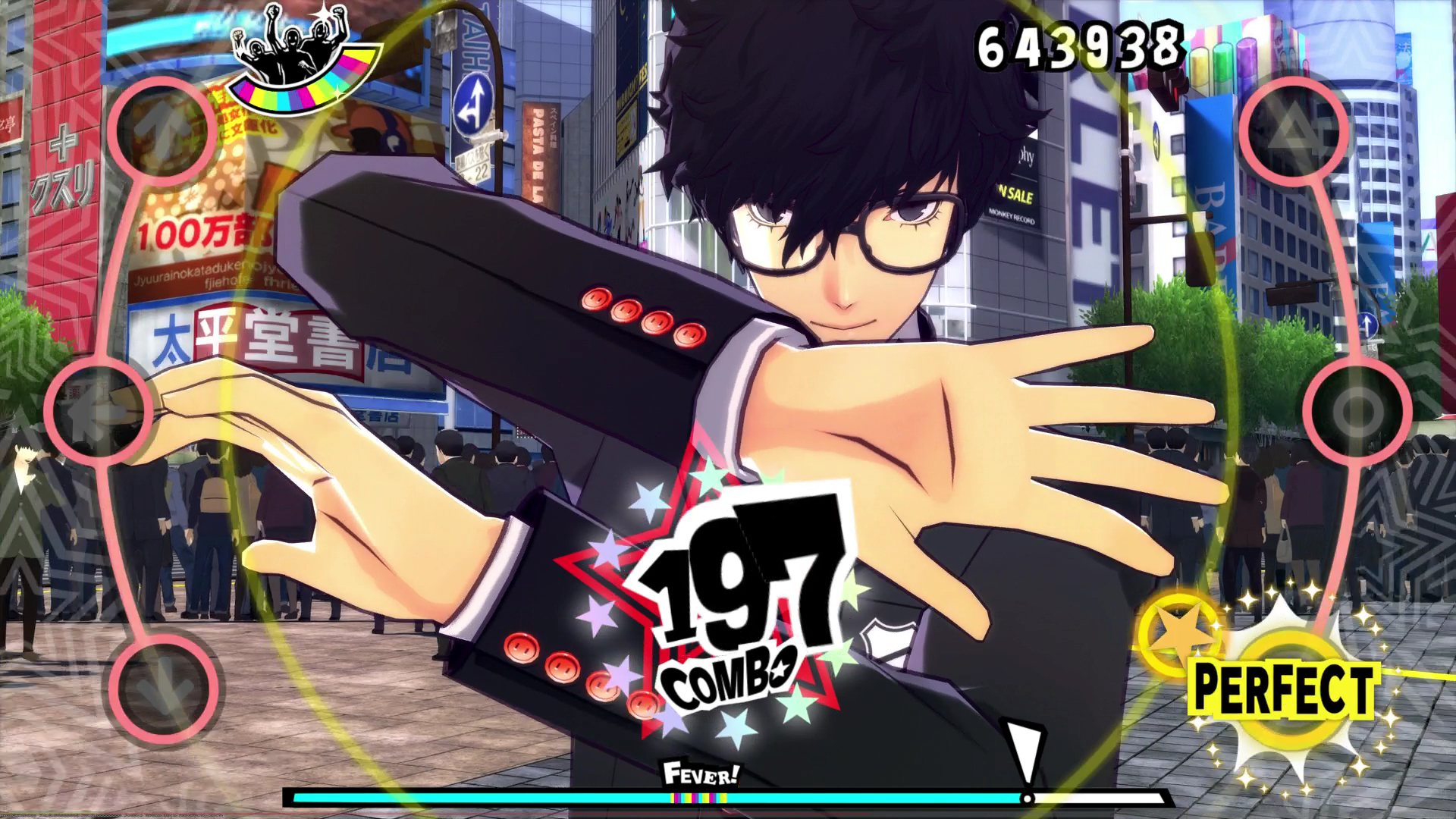 In this rhythm-based spin-off, Caroline and Justine challenge the Phantom Thieves to a dance-off in the Velvet Room, performing to iconic Persona 5 tracks.
In this rhythm-based spin-off, Caroline and Justine challenge the Phantom Thieves to a dance-off in the Velvet Room, performing to iconic Persona 5 tracks.
15. Persona 5 Strikers (2020)
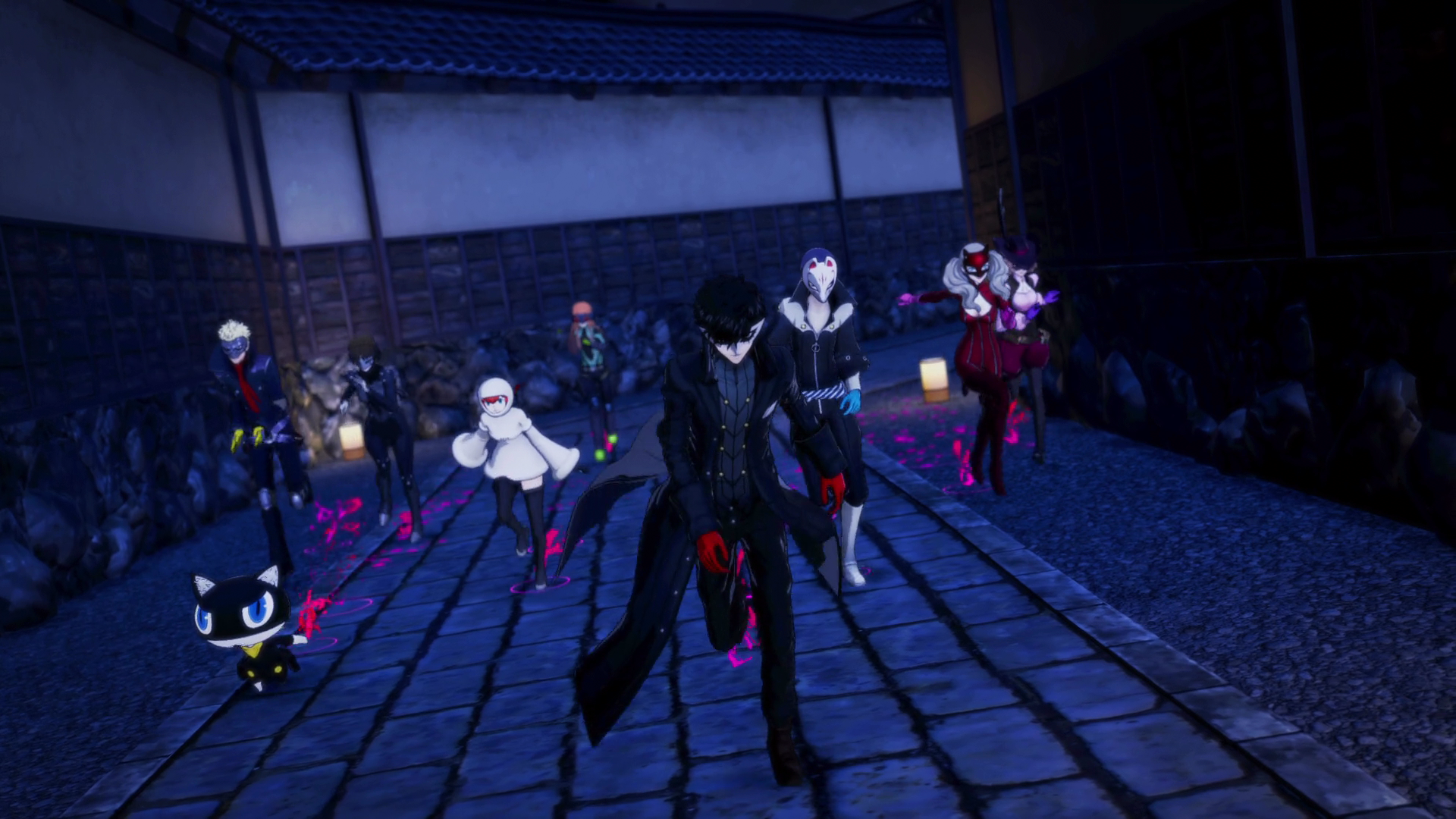 Set four months after Persona 5, Strikers follows the Phantom Thieves on a summer vacation turned Metaverse adventure. Utilizing real-time combat inspired by Dynasty Warriors, they battle large enemy groups and explore the mysteries behind the EMMA app.
Set four months after Persona 5, Strikers follows the Phantom Thieves on a summer vacation turned Metaverse adventure. Utilizing real-time combat inspired by Dynasty Warriors, they battle large enemy groups and explore the mysteries behind the EMMA app.
Read our review of Persona 5 Strikers.
Every Persona Game and Spin-Off in Release Order
- Revelations: Persona (1996)
- Persona 2: Innocent Sin (1999)
- Persona 2: Eternal Punishment (2000)
- Persona 3 (2006)
- Persona 3 FES (2007)
- Persona 4 (2008)
- Persona 3 Portable (2009)
- Persona 4 Arena (2012)
- Persona 4 Golden (2012)
- Persona 4 Arena Ultimax (2013)
- Persona Q: Shadow of the Labyrinth (2014)
- Persona 4: Dancing All Night (2015)
- Persona 5 (2016)
- Persona 3: Dancing in the Moonlight (2018)
- Persona 5: Dancing in the Starlight (2018)
- Persona Q2: New Cinema Labyrinth (2018)
- Persona 5 Royal (2019)
- Persona 5 Strikers (2020)
- Persona 5 Tactica (2023)
- Persona 3 Reload (2024)
What's Next for Persona?
In 2024, fans of Atlus RPGs enjoyed two releases: Persona 3 Reload and Metaphor: ReFantazio, a new RPG from Atlus's Studio Zero. After the success of Metaphor, which garnered several awards, Sega announced continued investment in Atlus and the Persona franchise during a developers' Q&A session.The next project to watch is Persona 5: The Phantom X, a free-to-play mobile game set in the Persona 5 universe. It was released in China, Taiwan, Hong Kong, Macau, and Korea in 2024, with a Japanese release expected soon after a closed beta sign-up in October. A global release is anticipated, though no official date has been announced. The Phantom X features an original story with new characters joining the Phantom Thieves.
Persona 6 is the eagerly awaited next mainline entry, although Atlus has not yet confirmed its development officially.

